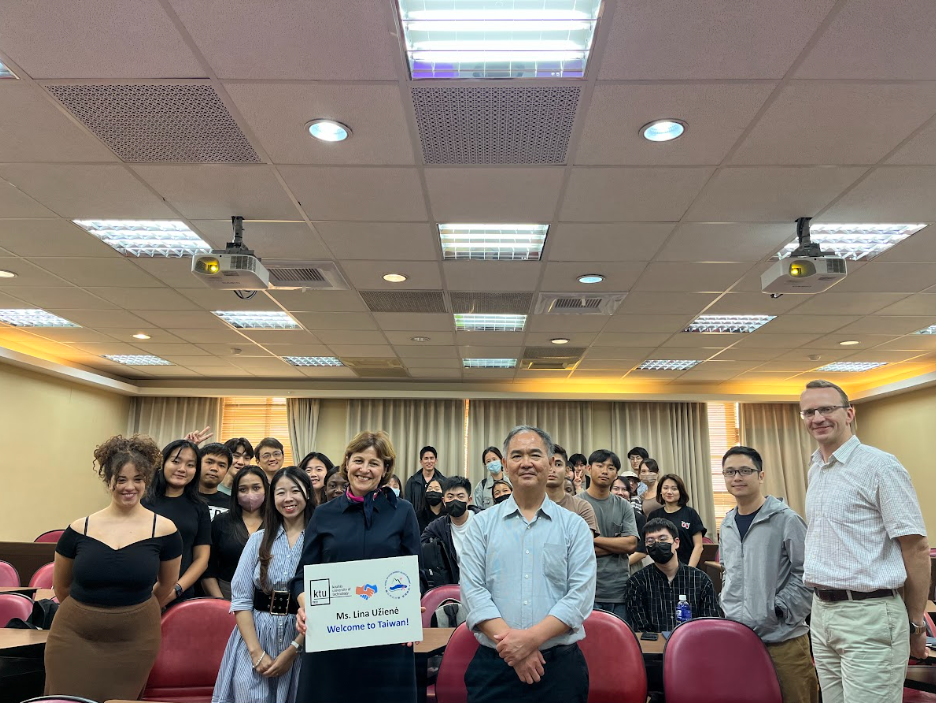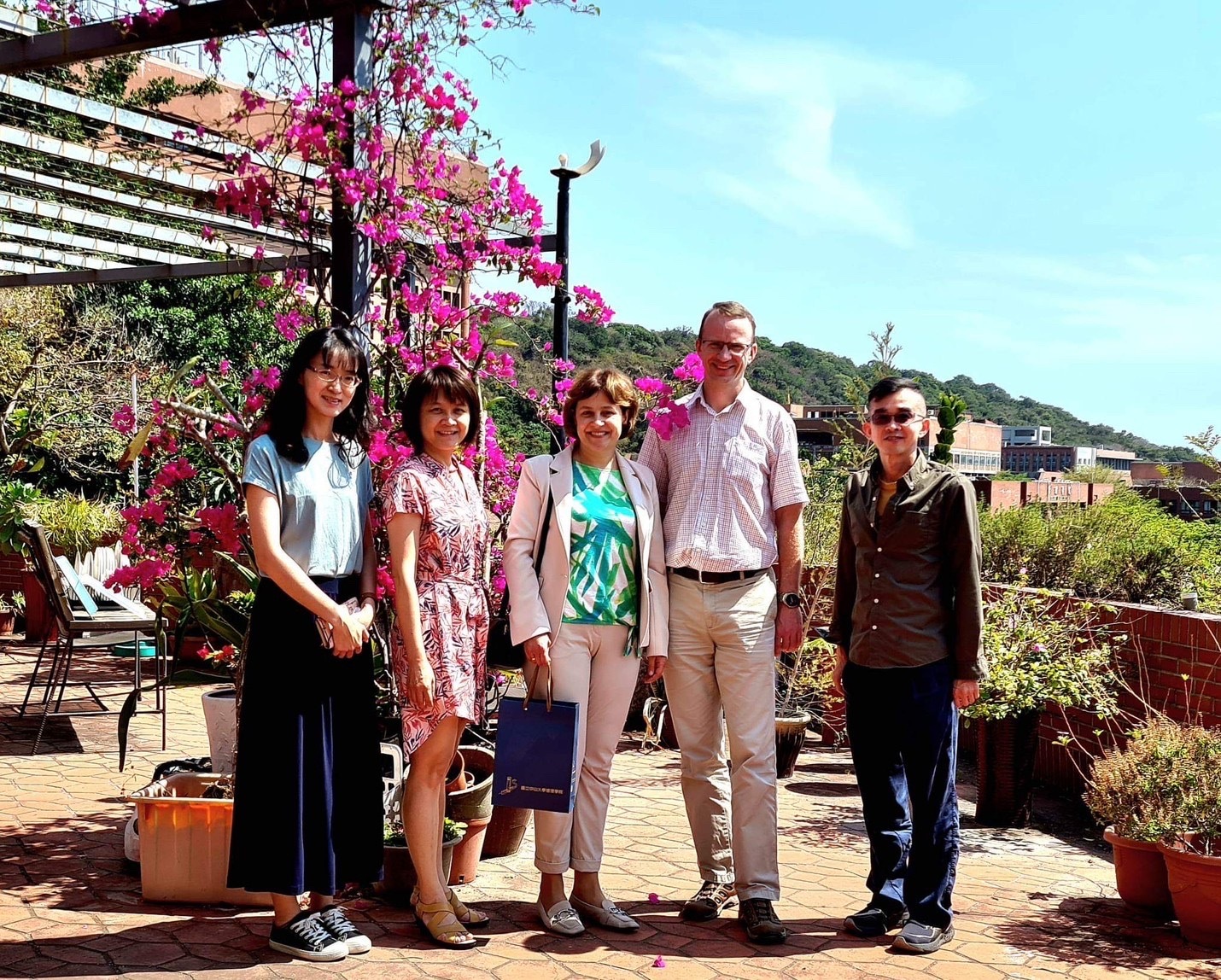Guest Lecture- Digital Transformation: Luxury or Necessity?
Written by Maggie Wu/ Edited by Sam Chen
National Sun Yat-sen University (NSYSU) is the only university entrusted by the Ministry of Foreign Affairs to collaborate with Lithuania's leading universities in the Taiwan-Lithuania Semiconductor Talent and Research Scholarship Program (STAR Program). NSYSU has established Memorandums of Understanding and a Joint Statement with three top-ranking Lithuanian institutions: Vilnius University (VU), Vilnius Gediminas Technical University (VILNIUS TECH), and Kaunas University of Technology (KTU). Shyh-Jer Chen(陳世哲), a Distinguished Professor at the Institute of Human Resource Management at NSYSU's College of Management, invited Dr. Lina Užienė from KTU to deliver a series of guest lectures for the university's international programs.
On March 21, 2023, Dr. Lina Užienė from Kaunas University of Technology (KTU) conducted a guest lecture for Dr. Wen-Shin Chen’s course of Management Information System. She provided valuable insights on the topic: Digital Transformation: Luxury or Necessity?
Dr. Užienė comes from a thriving and beautiful country, Lithuania, located in the Eastern Europe. She began her lecture with a profound introduction of Kaunas University of Technology (KTU), which is one of the largest technological universities in the Baltic region, with 8 research institutes and 9 faculties in all fields of science, including mechanical engineering, chemistry, economics, and linguistics. After introducing KTU, Dr. Užienė shared some cultural backgrounds of Lithuania. It is a country known for the oldest oak tree in Europe. In addition, Lithuania Song Festival, whose heritage is recognized by UNESCO, is a massive traditional song festival for the Baltic region. Recently, Lithuania has built very close connections with Taiwan for sharing abundant technology experiences.
Dr. Užienė further illustrated her experiences at the 2020 World Expo in Dubai and showed how digital transformation has evolved recently. She specifically emphasized: “Everyone is afraid that robots will come, while there are some business aspects that cannot be replaced, such as logistics, human resources, and accounting. Thus, don’t be afraid because human intervention is still very important.” She also discussed the digital economy and society indices in the EU, including human capital, connectivity, integration of digital technologies and digital public services, as well as other indices such as IMD world digital competitiveness and the European Index of digital entrepreneurship systems. “Although technology moves itself, it takes time to put technology in business,” she concluded.
In the second session, Dr. Užienė introduced digital transformation in an organizational context that is mainly derived from her research project about “Digital Transformation Assessment.” She discussed in details about the seven dimensions of their research, which are corporate strategy, leadership and organizational culture, organization and process, technologies, supply chain and networks, products and services, and employees and competencies. Their research suggests that during the digital transformation process, managers need to encourage employees to try new things as well as to accept the situation that they might fail and that they need to learn from their mistakes. Dr. Užienė further discussed various examples of digital transformation in Lithuania and in her city, Kaunas, particularly since the pandemic. While the significance of digitalization was highly emphasized, she also cautioned us about various issues resulting from digital transformation such as war crime, cyber security, propaganda, income inequality, autocracies, and platform monopolies.
To conclude the lecture, Dr. Užienė highlighted the significance of sustainable digitalization that should use the UN’s SDGs as the basis of transformative policies to help create human-centered digital transformation. During the final Q&A session, several students eagerly asked critical questions about political and societal issues of digitalization experiences in Lithuania. Their enthusiasm and criticality intrigued our guest speaker and helped bring Dr. Užienė’s informative lecture to an end.




